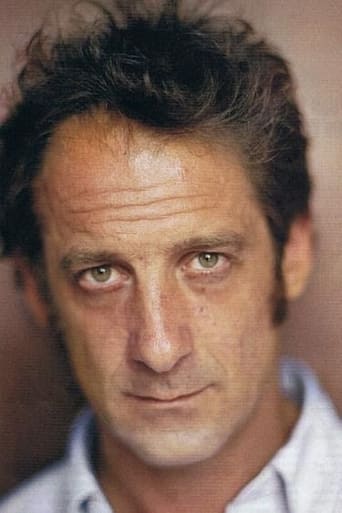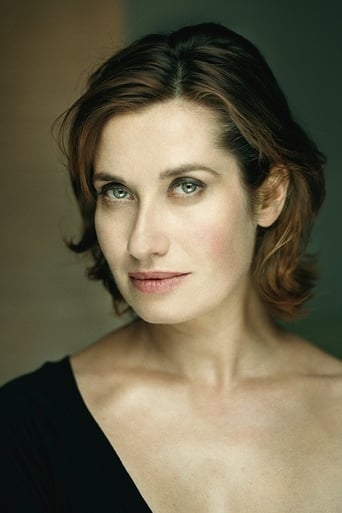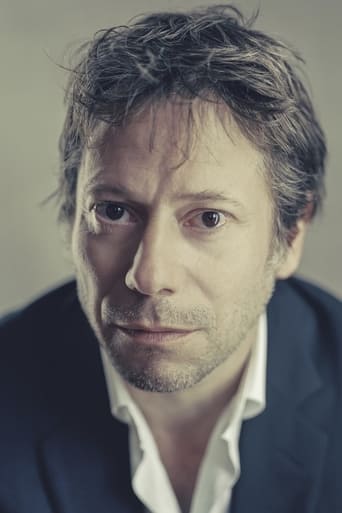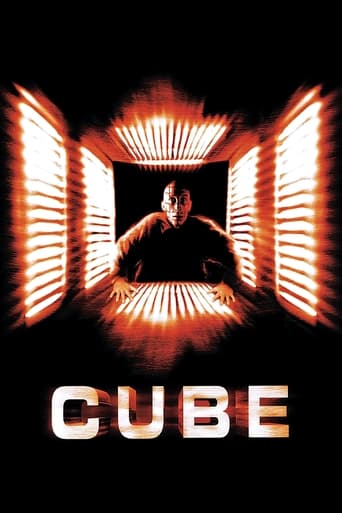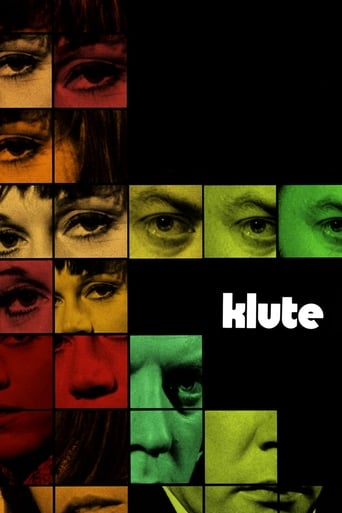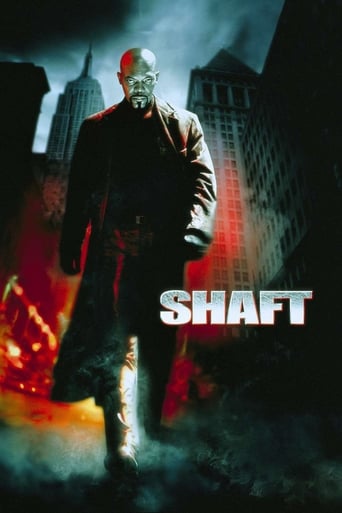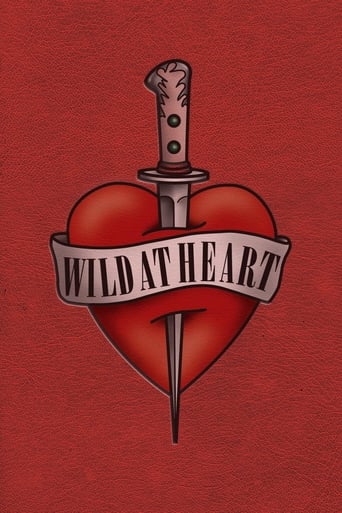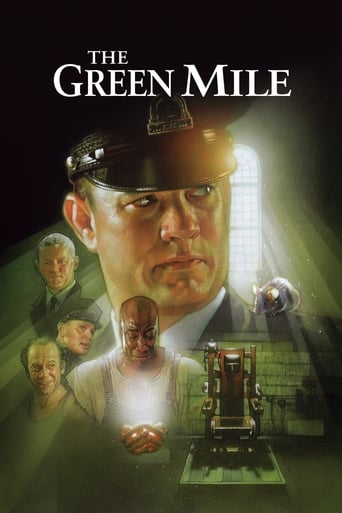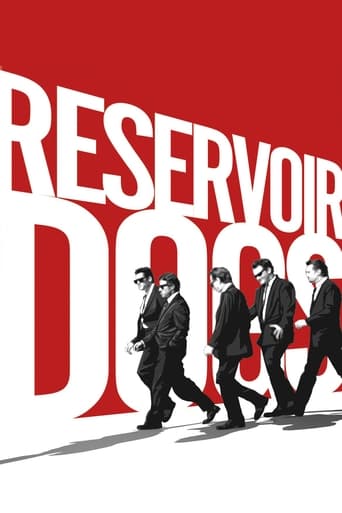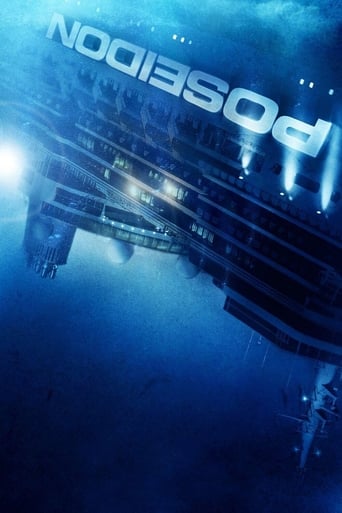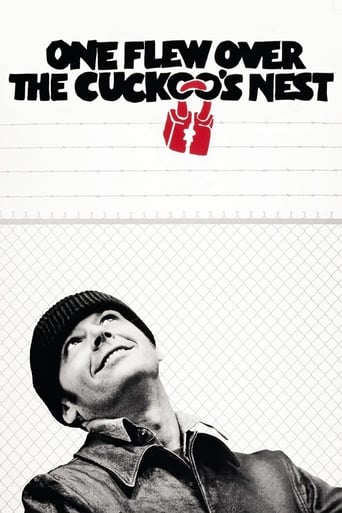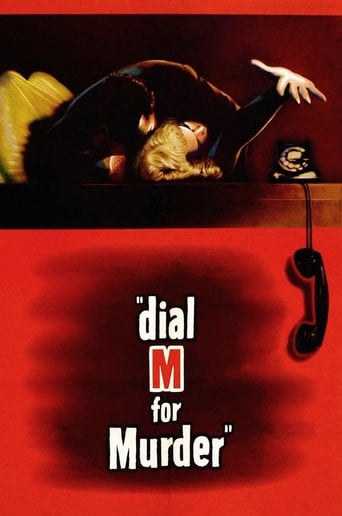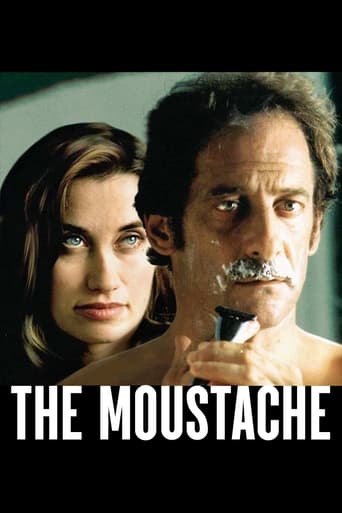
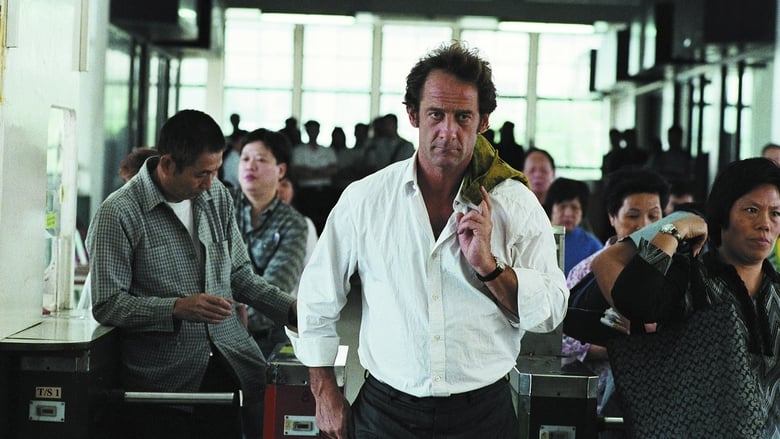
The Moustache (2006)
One day, on a whim, Marc decides to shave off the moustache he's worn all of his adult life. He waits patiently for his wife's reaction, but neither she nor his friends seem to notice. Stranger still, when he finally tells them, they all insist he never had a moustache. Is Marc going mad? Is he the victim of some elaborate conspiracy? Or has something in the world's order gone terribly awry?
Watch Trailer
Cast


Similar titles
Reviews
It can be said that French cinema has always had its fair share of daring films. These are films which have challenged viewers' notions about understanding a film through what it contains and how it is perceived by viewers.La Moustache is one such French film which mocks viewers as a hard to crack puzzle but fails to connect emotionally with viewers due to its absolute lack of coherence which is a much sought element in the field of cinema.Before directing films including this film in question,Emmanuel Carrère enjoyed a good literary career. However,"La Moustache" is a major disappointment as it does not give viewers enough material to be able to answer numerous unanswered questions.As the casting of this film is nice,watching Emmanuelle Devos,Mathieu Amalric and leading actor Vincent Lindon is a consolation even at a time when the film's leading man travels aimlessly as far as Hong Kong in order to understand his life's raison d'être due to an incident involving the proverbial mustache.Lastly,what would shock the viewers the most about this film is that towards the end all scattered pieces are neatly arranged to give a sense of relief to viewers.However, viewers cannot be underestimated as they choose their relief in cinema using own methods.
When we stubbled across this movie, we discovered that this hair-raising thriller is certainly tuft to follow. Marc, the mane character, with a rather stiff upper lip, wigs out after he shaves his mustache. On the fringe of a mental breakdown, Marc finds himself in a hairy situation. Whom can he tress? When his crew cuts him out of his life, Marc dreads the prospect of insanity and waves goodbye to his roots. He leaves all his split ends behind in France, and come 5 o'clock, he's merely a shadow of his former self. To call the movie bland would be a bald statement. The intricacies weave together within a trim 80 minutes, and there's no big blow- out at the end of the film. The dialogue was razor sharp, and Marc looked scruffy. He pelts out of France to Hong Kong, making sure to grab his coat (what is he trying to hide?) The plot's not all fluff.
La Moustache opens with a man thinking about possibly shaving his moustache. There are theories in both spiritual and scientific circles that postulate that whenever we make a decision like this we in fact make them both. We "filter" out the decision that we "didn't" make and continue to live our normal seemingly-linear life, but another reality exists, just as real as "this" one, in which we made the "other" decision.To understand this movie in a multiple-timeline context, we have to back up to the beginning of the main character's adult life (before the movie starts), in which he made the decision to grow a moustache at all. In timeline A he never grew one, in timeline B he always grew one since he could. The movie thus begins in timeline B. To keep things simple, let's pretend there are only these two timelines to worry about.The movie opens with the main character making the decision to shave his moustache. In one reality, timeline B, he keeps it. We don't see this reality for the next week or so of his life. Instead, the decision to shave his moustache is so jarring that he "jumps" to timeline A, or more accurately he jumps to timeline A but elements of timeline B are still known to him, such as the photographs of his vacation, the license in his wallet, and his overall consciousness and memories are still from timeline B. Most of the movie, however, takes place in timeline A.The fact that he is caught between timelines is psychologically disturbing to him and his wife, neither of whom understand the predicament he is in, and assume that he is either going crazy or, as he assumes at times, someone may be playing an elaborate prank on him.Overhearing that his wife might send him to a mental institution, he escapes to Hong Kong. He immediately misses his wife and writes a postcard to her that he will be back by the time she gets it, but doesn't mail it. He takes a ferry from the city side to the airport side of a river, but before boarding the plane, changes his mind again and goes back on the ferry. Then he _keeps on_ going back and forth across the ferry until the end of the day when it closes. He never does go back to the airport.The ferry riding is a very interesting element in the film. A decision - the decision to shave his moustache, was done hastily in the beginning of the film. Again, another decision, to not get on the plane and get back on the ferry, was made quickly. Was he perhaps trying to "trick time" into getting him back into the right timeline? Or is the ferry simply a way to experience the same space over and over again - a "sameness" - that is in fact "different" every time (every time he rides the ferry there are new people, and he sits in a different place, etc. Even the chairs on the ferry seem to have adjustable backs on them that can swing one way or another, so that the rider can make a decision to face backwards or forwards. Only the ticket seller is the same, and she never seems to recognize him or wonder why he is riding back and forth) Normally we experience sameness (e.g. going to work) that can seem very much the same every time (same co-workers, similar work, etc.) and the ferry is a break from that. Or does the ferry "between" the city and the airport represent his state of "betweenness" of the timelines? He doesn't want to go back to France, where they might put him in an institution, but he doesn't want to go to his Hong Kong hotel, where he will be missing his wife. He decides to stay "between" for this day, and he seems content in this between-ness. He doesn't seem that nervous or worried on the ferry. He is cordial, even smiling to teenage schoolgirls that are giggling at him. He is learning to be OK with betweenness.The movie then jumps to what seems like days later (or perhaps even longer) and the main character now has a moustache grown out. The moustache being present is the catalyst to get him back to timeline B, and when he gets back to his hotel his wife his there, and it is as if she has been there the whole time, with him, on vacation.That night he asks if she would like to see him without a moustache, and she says that she might like to have him try it. This is a different answer than at the opening of the movie, where she says that she has never seen him without it, and she doesn't seem to be that into the idea of him shaving it. He shaves the moustache, but stays in timeline B. Perhaps this time the move is not so jarring because he has done it before. Or perhaps it is because his wife seems more approving this time while they are happy on vacation. Or perhaps it is because he has learned to live in and accept "betweenness" after his experience on the ferry. All is well. Or is it? As the lights dim in the room, the viewer is wondering if he will wake up in timeline A all alone.
"La Moustache" is drawn from a novel penned by Emmanuel Carrère and this time, he chose to translate into pictures this mad story rather than letting seasoned filmmakers adapt it for the screen as it was previously the case (Claude Miller turned "la Classe De Neige", 1998 into a winner while "l'Adversaire", 2002 showed Nicole Garcia's wide skills as a female director). The question is: was it wise from Carrère to do himself the job? Because without being a total failure, his work is a very mixed one. Someone like Roman Polanski or Dominik Moll (the man responsible for "Harry Un Ami Qui Vous Veut Du Bien", 2000) would have been the man for the job.To surprise his wife (Emmanuelle Devos) and friends, Marc (Vincent Lindon) decides to shave his mustache and amazingly, no-one notices it. Worse, his wife goes to claim that he's never had a mustache. Who's right and wrong? How will things evolve from here? The material was promising and let predict a terrific eerie film. You can see what motivated Carrère to shoot his piece of work: an irrational, absurd feud of a couple for a trivial detail which causes its disintegration. If the mystery remains open until the very last pictures and by opting for a deliberately sparse cinematographic writing especially relying on gestures and looks rather than words, Carrère doesn't properly handle the unnerving climate such a bizarre story could convey and some key-sequences are unsatisfying, notably when Devos screams to her husband: "you have never had a mustache". The dramatic progression isn't really mastered to be convincingly taken in the absurd spiral that eats up the couple. Without mentioning a flimsy end from the moment when Marc flies to Hong Kong and roams there for a long time before landing in a lowly hotel. His spouse finds him back there. How could she know he was there?It's such an underwhelming menu that you don't want to think about it after the screening. Is Marc's wife right? Doesn't she play a shady game with her husband? What does she think of the evidence found by Marc where he can prove he's had a mustache? Actually, one doesn't bother about these questions. As for the actors, they have seen better days before and it's not a film they would put on top of their CVs.


